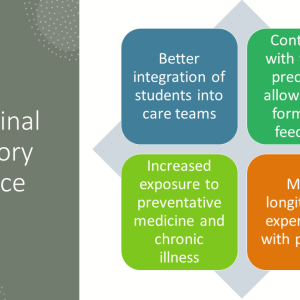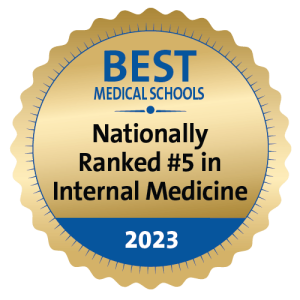SGIM22: Here is what's coming
Dimensions of a Generalist Career: Discovery, Equity, and Impact, that's what this years's annual meeting of the Society of General Internal Medicine is about.
Task Force Looks at New Second-Year PIONEER Program
The Department of Medicine (DOM) is creating a taskforce charged with developing the internal medicine component of a new program called outPatient Integrated lONgitudinal ExpERience, or PIONEER, f
Duke School of Medicine Ranks Fifth in Nation for Internal Medicine
The Duke University Internal Medicine program ranks No. 5 among 124 medical schools nationally in the 2023 U.S. News & World Report graduate program rankings released on March 30. The Duke University School of Medicine ranked No. 6 for research programs and many other departments at Duke were also ranked very highly.
GIM at the Duke Quality & Safety Conference
Duke General Internal Medicine participated in 34 of the 121 posters presented at the Duke Health Quality & Safety conference







